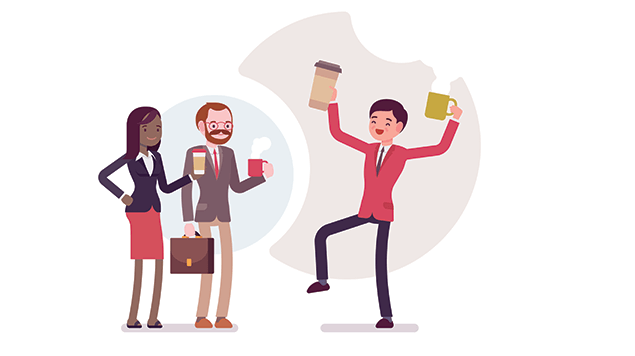Coffee is a fundamental component of the morning for more than two thirds of Americans. As a coffee drinker, you may have found yourself a little anxious to take a sip as of late because once again, coffee and cancer are in the news together. But, fear not, coffee lovers. Let’s take a look a closer look.
The latest case from March 2018 centered around Acrylamide – a chemical formed when coffee beans are roasted. According to gizmodo.com, the Los Angeles Superior Court ruling ordered producers to put warning labels on the packaging of all coffee sold throughout the state. in accordance with a 1986 law, Prop 65, which requires cancer warnings on known carcinogens. Acrylamide, a common byproduct of frying, roasting, or baking many foods, is on the list (which has landed junk food companies in legal trouble over alleged non-compliance before). But per the Associated Press, the OEHHA is now seeking a specific coffee exemption, citing a “review of more than 1,000 studies published this week by the World Health Organization that found inadequate evidence that coffee causes cancer.”
Referencing the article by www.cancer.org, the links between coffee and cancer have been investigated by researchers for years. In 2016, an expert panel convened by the International Agency for Research on Cancer (IARC) – the arm of the World Health Organization that is responsible for assessing whether certain substances cause cancer – could not conclude that drinking coffee is carcinogenic based on the current evidence available.
Studies have also concluded that drinking coffee is associated with a lower risk of dying from all causes of death. As well, more recent studies show that overall there are many health benefits to drinking coffee. So why all the cancer talk?
Truth be told, the risks still remain unclear as there are many factors at play when considering the links between coffee and cancer. For example, because some smokers also tend to be coffee drinkers, it is difficult to completely account for tobacco use in studies of coffee and strongly tobacco-related cancers. In 1991, research suggested that coffee increased the risk of bladder cancer, but the true causal factor was later found to be smoking.
Even if coffee truly does not cause cancer, some people boast that too much coffee (caffeine) is bad for you. Depending on your genes, that may not be far from the truth because some people have a harder time than others processing caffeine. But, for the vast majority of the population, caffeine in relative moderation is fine. Just keep in mind, not all caffeine is created equal either. You can find out more on that on our prior blog post.

